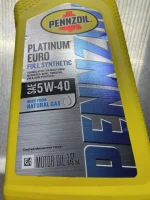edyvw
$50 site donor 2025
Nope. ANyone bringing 0W20 to my garage to use it in any of my Euro cars can take a hike.Just saw this, I wasn't online for a while.
I'm not the only one using 0w20 on a track, most modern hothatches come with 0w20 from the factory (like the Civic Type-R), and people drive the **** out of them at track with much more power output than my GLI. At 260F, oil temps should be fine. I've seen worse temps in my previous Hondas' (300+ F) and oil pressures were all good. EA888 Gen 3 almost takes 6 qt of oil (MUCH more than typical 4 banger), so the chances when it comes to oil starvation is pretty low, especially for a road legal car.
Not saying 0w20 is ideal or people should use it at track, but it is just fine. I understand there will be more wear, but I should also see worse results in UOA which is not the case here.
Using anything other than 0w20 for a daily driver though (like your Atlas, for instance), it is completely unnecessary. This UOA proves that.
There is just not enough margin there. Also, UOA that you run with Blackstone etc. won't give you a bulletproof picture.
VW has a very tight margin when it comes to cooling, regardless of 6qt. Here at HPR all VWs are running with modified cooling systems. They simply cannot handle this altitude (still better then Subarus and similar cars). 260f means you are already close to timing to be dialed back.

